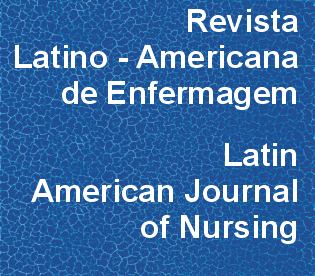Bipolar affective disorder and medication therapy: identifying barriers
DOI:
https://doi.org/10.1590/S0104-11692008000400014Keywords:
bipolar disorder, self medication, interpersonal relationsAbstract
This study identified the barriers faced by people with bipolar affective disorder (BAD) regarding the need for continuous medication. The qualitative approach was used, and the methodological framework was based on the Grounded Theory in the light of Symbolic Interactionism. In total, of 14 people with BAD, who were being attended at the Outpatient Unit for Mood Disorders of a university hospital, and 14 relatives indicated by them participated in the study. The data collection was carried out through interviews and observation. Two categories emerged from the results, describing the barriers faced by people with BAD: to have affective and cognitive losses and to have several limitations. People with BAD feel ambivalent regarding medication adherence, as they perceive that, no matter the direction they take, it will lead to a context of prejudice, losses and limitations in various spheres of daily life.Downloads
Download data is not yet available.
Downloads
Published
2008-08-01
Issue
Section
Original Articles
License
RLAE’s authorship concept is based on the substantial contribution by each of the individuals listed as authors, mainly in terms of conceiving and planning the research project, collecting or analyzing and interpreting data, writing and critical review. Indication of authors’ names under the article title is limited to six. If more, authors are listed on the online submission form under Acknowledgements. The possibility of including more than six authors will only be examined on multicenter studies, considering the explanations presented by the authors.Including names of authors whose contribution does not fit into the above criteria cannot be justified. Those names can be included in the Acknowledgements section.
Authors are fully responsible for the concepts disseminated in their manuscripts, which do not necessarily reflect the editors’ and editorial board’s opinion.
How to Cite
Bipolar affective disorder and medication therapy: identifying barriers. (2008). Revista Latino-Americana De Enfermagem, 16(4), 739-745. https://doi.org/10.1590/S0104-11692008000400014



